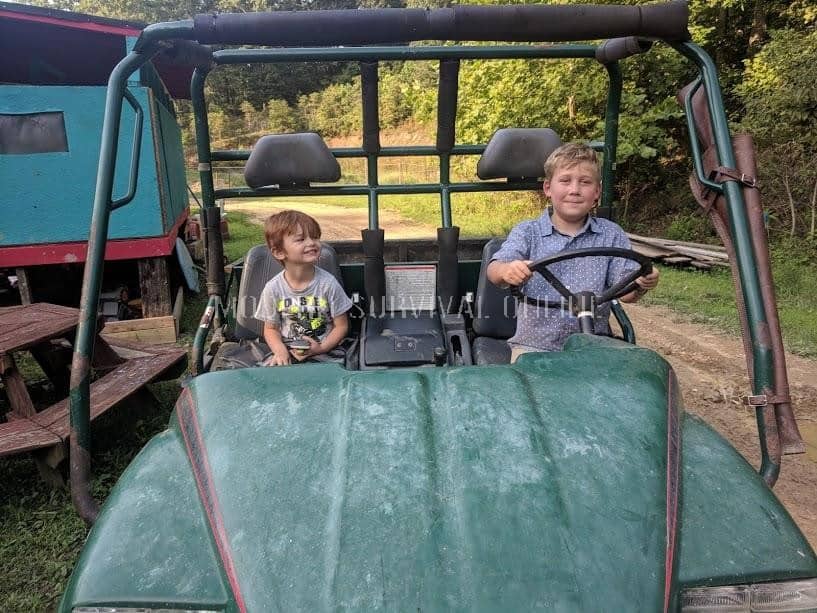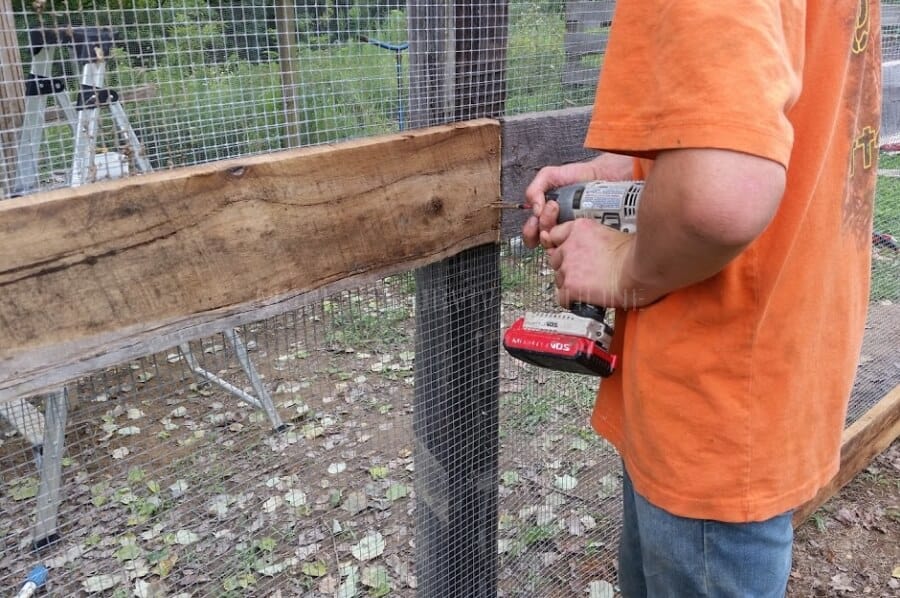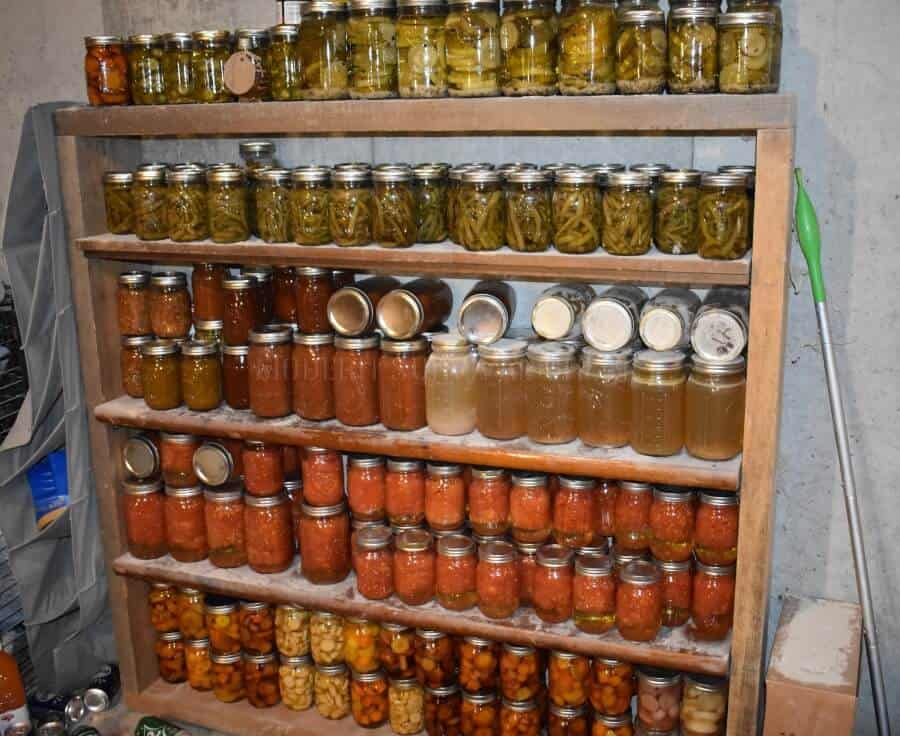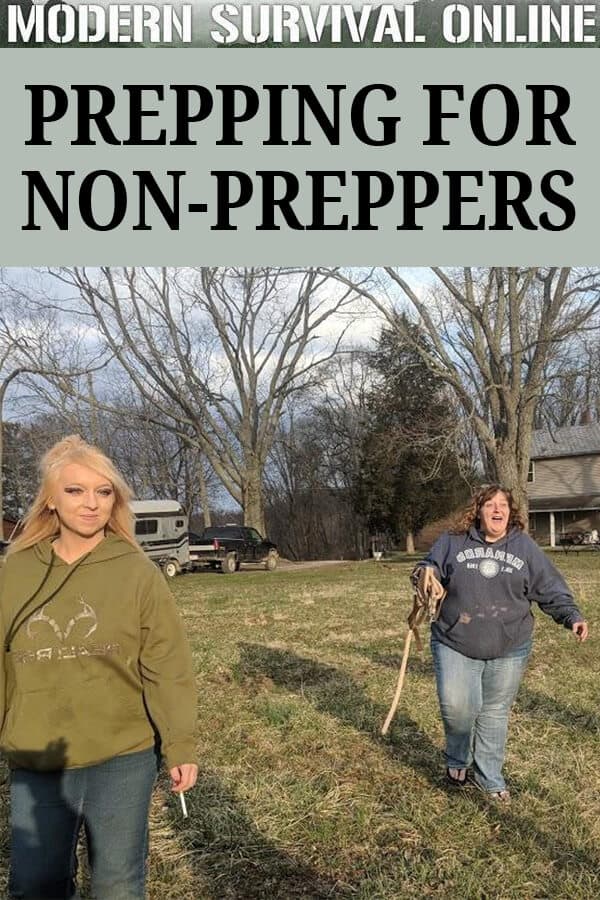You may have stockpiled all of the preps your family will need to last five years, have mastered a copious amount of survival skills, and live off the grid in a remote area – but are you prepped for accommodating friends, family and non-preppers into your post-apocalyptic life?
Turning away a complete stranger is one thing, but shunning someone you know, well that’s an entirely different proposition indeed. If you have not pondered this heart wrenching question, a massive hole exists in your survival plan.
As a Prepper, You Need to Make Some Tough Decisions
We all have the same amount of time and opportunity to prep. Trying to educate others now before it is too late is important to a lot of us. One of my best prepping gal pals, Survivor Jane, is rather fond of saying, “We are all in this together.”
Trying to educate others now before it is too late is important to a lot of us. One of my best prepping gal pals, Survivor Jane, is rather fond of saying, “We are all in this together.”
But, even sweet Jane will be willing and able to turn away folks who wind up on her doorstep after a doomsday disaster strikes. We all need to possess that type of resolve if we want to live … if we want our families to live.
I grew up country, and was a rather self-reliant woman – as most folks are who grow up outside of the concrete jungle. But, I did not go all in on prepping or really know a lot about what that meant, until after our region lost power during a heat wave and drought for over a week eight years ago.
My husband, Bobby, had been a prepper for years – decades really. But it took living through the short term tri-state area power outage and the utter incompetence of FEMA’s response to get me to become a true prepping partner.
But, before I committed to being a devoted and active prepper with my husband, I made him promise – swear actually, one thing…
If we were going to live a prepper lifestyle and launch what ended up being a 3-year search for the perfect spot for our survival homestead, he had to commit to turning away EVERYONE who came begging at our doorstep, no matter who they were, if they did not bring value to our (then) little prepping tribe of two.

Being a writer, I created some very emotional and graphic scenarios of the unprepared finding their way to our home. I wanted each scenario to be even more emotion tugging than the last to drive my point home.
The scenario that caused my beloved strong, skilled, dedicated, determined, and yet big-hearted man to pause was this one:
“A young woman with a baby shows up clearly in great need of food, nearing dehydration, and crying as she begged for our help.”
I needed to know if he could turn her away. Ultimately, on his own, he said that he would.
Am I a cruel and heartless witch of a woman? Nope. I am an intelligent mother who now has five grandchildren, and four more coming into the family officially very soon.
Giving away a little bit of food to this woman would not sustain her life very long, but giving away that same little bit of food to every woman, elderly man, teenager, 30-something man with a child, whatever, would eventually dwindle our preps to the point to where the bellies of our adult children and grandchildren, would go empty.
That, my fellow preppers, is a situation I simply will not allow, no matter how much it breaks my heart to turn my back on a fellow human being in need.
Some preppers plan to practice Christian charity during a long-term disaster. Being raised in a Christian household, having taught both Sunday school and vacation Bible school, my heart tugs me in the same direction.
But (yes, again there is a but) doing so will result in the same dire straits I laid out above AND make you vulnerable to attackers who will, without a doubt, hear about the free food, water, and medicine available at 1305 Stupid Preppers Drive, Any Rural Route, Any State, USA.
Bobby and I, like other preppers, discussed leaving boxes of items by the road or planting extra growing plots in the same area. All that act would accomplish would be alleviating the face-to-face emotional discussion with the unprepared and still announce to the world that food is available at… see address above.
Instead of wringing my hands about turning other folks away who have not taken advantage of their opportunity to prep during a SHTF event, I work relentlessly to increase self-reliance awareness, and teach survival homesteading skills to not only people that I care about or who live near me, but all comers.
Doing so is my act of Chrisstian charity, one that will not cause harm to our children, grandchildren, or members or our prepping tribe who invest both time and money making sure they can survive if the world suddenly goes pear shaped.
Now, all that being said, I would possibly agree to letting some friends, neighbors, relatives, or even strangers (it is a small rural county, so strangers are unlikely) in if they offered value to our survival homestead, and stockpile extra items in case such a situation presents itself during a long-term disaster or the societal rebuilding phase which will follow.

What People You Should Consider Letting Into Your Prepper Retreat
If a person either fills a void or greatly improves on a vital prepping category, you should consider allowing them to join you to ride out the apocalypse. But, doing so could put your family at great risk if you do not know the individual personally.
Your carefully cultivated OPSEC plan could go up in smoke in mere hours if the person you let in was merely a scout for marauders or was part of a larger group – even if they were decent people, who would converge on your homesteading survival retreat.
Weigh the pros and cons of even considering, or perhaps even speaking with anyone you do not know incredibly carefully. What you choose to say or do could place yourself and your loved ones in grave danger.
Top 10 Types of People Who Could Add Value to Your Prepper Retreat
- Medical Professionals – Medical prepping is the most difficult of a prepper’s survival plan. Doctors, nurses, orderlies, pharmacists, veterinarians, EMTs, military medics, and students in the medical profession could be worth sharing your space and food with during a disaster.
- Firefighters – Firefighters typically have some type of medical training, obviously know how to help prevent and put out fires (a huge plus when calling 911 will no longer be an option), and are physically fit and brave individuals.
- Law Enforcement Officers – These brave men and women of good characters are trained to not only be expert marksmen, but to make a life or death decision in a split section – with the preservation of their life and those around them a top priority to factor into the equation.
- Military Members and Veterans – Again, you would be adding an individual with extensive weapons training capable of making a life or death decision rapidly, to your prepping group. He or she, regardless of age, would be a wealth of knowledge when it comes to perimeter defense, attack planning, hand-to-hand combat, covert communications, etc.
- Hunters – In our small county, most everyone hunts – but some are far better at it than others. If your prepping tribe could use an extra accomplished hunter, especially if you are an older prepper, allowing in someone you can vouch for from a character perspective, who also can help put more food on the table – especially if they can also butcher what they harvest from the woods, they too may be worth considering adding to your group. A hunter, be they prefer to go into the woods with a firearm or a bow, can also help defend your retreat and have already proven they can handle the blood, gore, and emotions involved with taking a life. If the person is a bowhunter, they will hopefully also known how to make their own arrows.
- Trappers – Being able to trap small game to help supply protein to the prepper retreat to prevent food stores from running low or when large game has been overly taxed and more difficult to locate, would be beneficial to daily life on the prepper retreat during a long-term disaster.
- Gunsmiths or Reloaders – All preppers should possess some gun repair and reloading skills. It would be extremely odd for a gunsmith or a reloader not also know how to shoot firearms well and possess plenty of their own – an added bonus.
- Mechanics – If you are prepping in a city (please move) in the suburbs (again, please move) in a small town or on small acreage, a mechanic will likely not be of supreme value. But, if you live in a rural area and have acreage, keeping farm and ATV equipment in good working order can help keep the survival homesteading retreat sustainable and the most self-reliant it can be for far longer. During the societal rebuilding stage, having a mechanic at your retreat increases your bartering opportunities.
- Carpenters or Engineers – Thinking long term during a mega disaster, having a carpenter and – or an engineer in your group to complement the skills members already possess, could be advantageous. Being able to repair, enhance, or build structures on the property to prevent decay and make space for births both in the home and in the barn, might be useful – but only if you know the character of the person, and if they also have a modicum of other skills that can contribute to daily chores.
- Gardeners – A prepper must know how to grow, harvest, and preserve their own food. But, if you know the person is an expert gardener and is of good character, their ability to help work the growing plot, detect plant disease quickly, and know how to naturally mix herbicides and fertilizers from materials you have on hand – not store bought, they might be enough of an asset to consider allowing them into your group.

What To Stockpile for Your SHTF Guests
Everyone in our survival tribe has necessary items stockpiled here and living quarters – along with what they will be bringing with them when they bugout to our location. When they show up, even if the opportunity to go home and load up their planned bugout gear is nixed, these folks will not do without.
If (when, really) an unprepared person shows up on your doorstep, they will come with nothing – or at most, a few things stuffed in a backpack. They will need things and a place to sleep.
Planning on stockpiling and growing extra food to help feed those you take in is the most important step you can take if considering allowing anyone other than your family or group members live at your home or retreat during a disaster.
Factoring some more detailed gear and designated living space into your survival plan is highly recommended.
7 Things To Prepare or Stockpile for the Unprepared
- Living Quarters – Designate a space in your home or on your property to turn into simple living space for add-on group members. This can be as simple as blow-up mattresses, and a space left for them to be used in a living room or basement, wood stockpiled to frame in a porch for living space, second hand campers, tents, or garage space that can be used to house people. Do not forget to factor a heat source and sanitation into the living quarters preparations.
- Bedding – Purchase extra sheets, pillows, blankets, or sleeping bags to use as bedding for the new additions. Hitting yard sales, church rummage sales, flea markets, seasonal store clearance sales, and the Goodwill are excellent places to pick up bedding items for a nominal cost.
- Outerwear – If the SHTF during the middle of summer, it is unlikely that any of the displaced non-preppers will have a winter coat or even fall or spring jackets. You can shop at the places noted above for outerwear, hats, gloves, and scarves in a variety of sizes.
- Footwear – Boots and shoes will wear out a lot more quickly during a long-term disaster when more manual labor is necessary on a daily basis. Hit the bargain places already noted to score footwear for all seasons in both adult and child sizes (if you are lucky enough to take in a doctor, his or her whole family will likely be a part of the bargain) extra laces, and sole inserts.
- Clothing – The season the person arrives in during the doomsday disaster scenario is likely the only one they will be dressed or have clothing in their backpack to address. Cheap second hand clothing can be purchased and stockpiled alongside your other preps. You might be surprised how often you can find T-shirts, socks, underwear, and bras at the Dollar Tree and at yard sales for far less than $1 each.
- Personal Hygiene Items – When adding to your stockpiles of tampons, sanitary napkins, razors, soap, toilet paper, etc., begin purchasing a little extra to share with the new members of your prepping tribe. Poor hygiene can spread disease, and being exposed to more germs, bacteria, and illness is not something you want during a doomsday disaster.
- Cleaning Supplies – The more people living in one place, especially a confined space, the more cleaning that will need to take place. As noted above, preventing the growth of bacteria and germs and preventing illness should remain a top priority of your prepping plan.
Preparing for Those You’e Already Courting Into the Prepping Lifestyle
Do you have unprepared folks in your life you care about and just can’t seem to get to hear what you have been trying to tell them about the need to be self-reliant our go full scale prepper? We do.
I know it can feel like beating your head against the wall when literally trying to get them to save their own lives and offering to help them do just that. This small group of people in our orbit have been given a small binder labeled “When The SHTF And You Wish You Would Have Listened”.
I am planning for these few families to show up at our home and want to take them in. I know what skills they already possess and would vouch for their upstanding character to anybody who asked. The difference between folks like these in our lives and those we know less about, is we can prepare better for their anticipated arrival.
Your favorite cousin who is resisting becoming a prepper in spite of your best efforts will surely have an epiphany when society changes overnight.
Because you obviously know your cousin well, you can not only stockpile to suit what they will need and know specifically where they will fit into your survival plan, you can give them a binder for them to review and adhere to before rapidly fleeing to your home and being welcome in … after hearing “I told you so”, of course.
Among basic prepping advice given to these select few in the binder, just in case they cannot make it to us, is a list of what to bring. In the panic that will happen immediately after the SHTF, you cannot expect an unprepared, no matter how skilled or intelligent, to think clearly enough to know what they should bring with them before fleeing in your direction.
Basically, this is a bugout list for the unprepared to ensure they bring some essential items with them to defray the burden they will be on your survival group and stockpiles.
Bugout List for the Unprepared
- Medicine – All prescription medications and over the counter medications in their home.
- Food – As much food that can be packed and transported without spoiling when not placed in a cooler (it will take up too much space) as possible.
- Spices – All the spices in their cabinet. Some will be medicinal and others can help add flavor to bland survival meals and stews or soups that are made in stockpiles are being stretched to cover meals during a long-term disaster.
- First aid Supplies – Bandaids, peroxide, rubbing alcohol, witch Hazel, burn cream, etc.
- Clothing – Seven days’ worth of clothing for all seasons.
- Footwear – Preferably for all seasons, as many winter and work boots that they own.
- Socks – all they own if possible.
- Gloves – winter and work gloves.
- Outerwear – Coats and jackets for all seasons, as much as they own if it will fit.
- Weapons – every firearm, bow, ammo, arrows, gun repair and reloading supplies, knives, and machetes.
- Wild Game Gear – All hunting accessories, fishing gear, and trapping gear that can be transported.
- Personal Hygiene Items – Feminine needs, razors, shampoo, soap, etc.
- Photo Albums – Pack family photos that are sentimental because you will likely not be coming back or the home will likely be ransacked if you do.
- Essential Documents – Pack birth certificates, child custody papers, mortgage papers, insurance documents, vaccination records, medical records – any paperwork that can show allergies, existing conditions etc. that can help with your care or the care of your children in an emergency, bank statements, etc.
- Fine Jewelry – Bring any fine jewelry, gold, silver, or gems that are of value and could be used for bartering.
- Bedding – Any sleeping bags, blankets, sheets, pillows, or air mattresses you need.
- Comfort Items – Toys for children, sentimental items or a few books for adults, etc. These should be kept to one bag per person or one bag per child with a tote filled with items all of the children in the family can enjoy for morale boosters: games, puzzles, books, etc.
- Camping Gear – Any tent, lanterns, propane cooking stove, solar lights, etc.
- Gardening – Seeds, gardening gloves, watering cans, growing aids, etc.
- Fuel – Any generator and cans of fuel that can be transported.
This list is long, but the folks in our area drive pickup trucks and SUVs, and typically also have some type of trailer that can be pulled. Items not added to the list include ATVs and livestock, those items are definitely important to bring, but when time is of the essence, I viewed the other items on this last as being the most important to fulfill the daily needs of the unprepared late comers.
Yes, more ATVs and livestock would be beneficial, and you may want to include them on a lists you make, but our survival homestead can exist without more of these items while our stockpiles and finances would be less taxed by the folks we hope to welcome into the fold bringing as many of the supplies and gear they will need with them.
I do not advocate taking in strangers or even friends and long lost relatives you have. I only hope that considering turning away those you know and don’t know alike, considering how to get the unprepared you want in your group to arrive geared up and ready to contribute a part of your survival plan.
Discussing and then agreeing on a finite list of the types of people you would consider letting into your group and how that decision would be made should be considered now and not after the SHTF.
Simply assuming you and the other family members will agree on whether or not someone should be admitted to the group paves the way for heated debates and divisiveness when you can ill afford such a fracture in your prepping family.

via Modern Survival Online https://ift.tt/2MLR29j
No comments:
Post a Comment